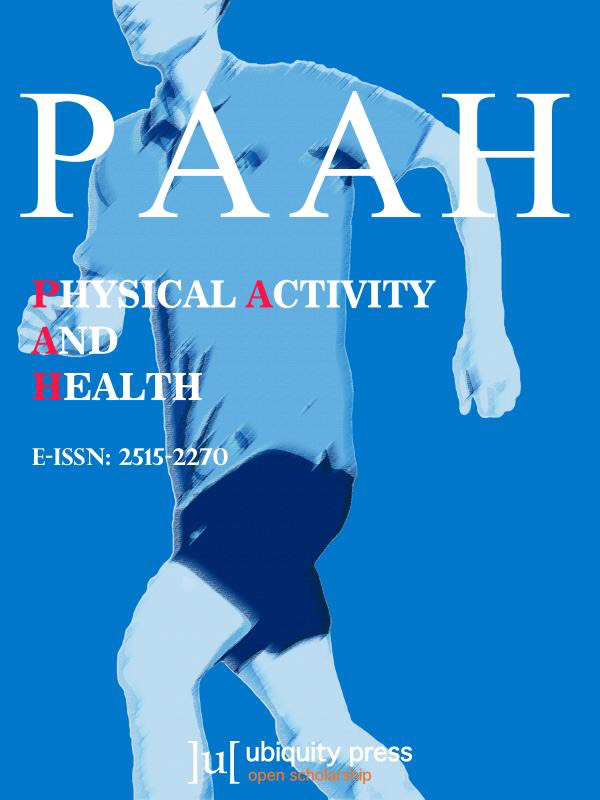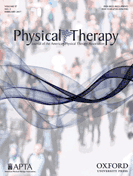Tai Chi & Qi Gong
How to submit an article:
- Registered users can submit any published journal article that has a unique DOI (Digital Object Identifier) name or link to Research Hub.
- For example, you can paste the full DOI link:
https://doi.org/10.1109/5.771073or just the DOI name:10.1109/5.771073into the field above and click submit. - The person who is first to submit a valid article to Research Hub will forever be credited for it, and every article submission earns you +6 Research Points.
Related Topics
Published research studies are articles that present the findings of original research that has undergone a peer-review process and has been made publicly available in scholarly journals, books or other media.

Effects of Tai Chi Chuan on the Physical and Mental Health of the Elderly: A Systematic Review
2021 Jan 27 Physical Activity and Health Xianjian C, Datao X
Systematic Review Tai Chi & Qi GongAll schools of Tai Chi chuan can improve the mental health of the elderly.

Effectiveness of Tai Chi for Chronic Musculoskeletal Pain Conditions: Updated Systematic Review and Meta-Analysis
2017 Sep 15 Physical Therapy & Rehabilitation Journal Amanda Hall, Bethan Copsey, Helen Richmond, Jacqueline Thompson, Manuela Ferreira, Jane Latimer, et al.
Systematic Review Meta-Analysis Tai Chi & Qi GongOur findings support the use of tai chi as a treatment for people with arthritis and potentially for low back pain.

Does Tai Chi relieve fatigue? A systematic review and meta-analysis of randomized controlled trials
2017 Apr 5 PLOS One Yu Xiang, Liming Lu, Xiankun Chen, Zehuai Wen
Systematic Review Meta-Analysis Chronic Fatigue Syndrome Cancer Fatigue Tai Chi & Qi GongTai Chi could be an effective alternative and/or complementary approach to existing therapies for people with fatigue.

A systematic review and meta-analysis of the effects of Qigong and Tai Chi for depressive symptoms
2015 Aug Complementary Therapies in Medicine Xin Liu, Justin Clark, Dan Siskind, Gail M. Williams, Gerard Byrne, Jiao L. Yang, et al.
Qigong appears to be beneficial for reducing depressive symptom severity. However, given the low quality of the included studies and the documented evidence of publication bias, these results should be viewed cautiously.
Systematic Review Meta-Analysis Tai Chi & Qi GongResearch insights are moderated by the Research Hub team and offer an at-a-glance overview of interesting research findings.

2021 Physical Activity and Health
All schools of Tai Chi chuan can improve the mental health of the elderly.
Systematic Review
Effects of Tai Chi Chuan on the Physical and Mental Health of the Elderly: A Systematic Review
Xianjian C, Datao X

2017 Physical Therapy & Rehabilitation Journal
Our findings support the use of tai chi as a treatment for people with arthritis and potentially for low back pain.
Systematic Review
Effectiveness of Tai Chi for Chronic Musculoskeletal Pain Conditions: Updated Systematic Review and Meta-Analysis
Amanda Hall, Bethan Copsey, Helen Richmond, Jacqueline Thompson, Manuela Ferreira, Jane Latimer, et al.

2017 PLOS One
Tai Chi could be an effective alternative and/or complementary approach to existing therapies for people with fatigue.
Systematic Review Cancer Fatigue Chronic Fatigue Syndrome
Does Tai Chi relieve fatigue? A systematic review and meta-analysis of randomized controlled trials
Yu Xiang, Liming Lu, Xiankun Chen, Zehuai Wen
Review Articles
Review articles summarise and critically evaluate the current state of research on a specific topic or field by synthesising multiple primary research studies.

Effects of Tai Chi Chuan on the Physical and Mental Health of the Elderly: A Systematic Review
2021 Jan 27 Physical Activity and Health Xianjian C, Datao X
Systematic Review Tai Chi & Qi GongAll schools of Tai Chi chuan can improve the mental health of the elderly.

Effectiveness of Tai Chi for Chronic Musculoskeletal Pain Conditions: Updated Systematic Review and Meta-Analysis
2017 Sep 15 Physical Therapy & Rehabilitation Journal Amanda Hall, Bethan Copsey, Helen Richmond, Jacqueline Thompson, Manuela Ferreira, Jane Latimer, et al.
Systematic Review Meta-Analysis Tai Chi & Qi GongOur findings support the use of tai chi as a treatment for people with arthritis and potentially for low back pain.

Does Tai Chi relieve fatigue? A systematic review and meta-analysis of randomized controlled trials
2017 Apr 5 PLOS One Yu Xiang, Liming Lu, Xiankun Chen, Zehuai Wen
Systematic Review Meta-Analysis Chronic Fatigue Syndrome Cancer Fatigue Tai Chi & Qi GongTai Chi could be an effective alternative and/or complementary approach to existing therapies for people with fatigue.

A systematic review and meta-analysis of the effects of Qigong and Tai Chi for depressive symptoms
2015 Aug Complementary Therapies in Medicine Xin Liu, Justin Clark, Dan Siskind, Gail M. Williams, Gerard Byrne, Jiao L. Yang, et al.
Qigong appears to be beneficial for reducing depressive symptom severity. However, given the low quality of the included studies and the documented evidence of publication bias, these results should be viewed cautiously.
Systematic Review Meta-Analysis Tai Chi & Qi GongClinical Trials
Clinical trials are research studies that involve people and are conducted to evaluate the safety and efficacy of new treatments or interventions, such as drugs, medical devices, or behavioural therapies.
Study Protocols
Published study protocols are detailed plans that outline the objectives, methodology, statistical analyses, and organisation of a research study that have been made publicly available for others to review and use as a reference.
Presentation Slides

Systematic Review
All schools of Tai Chi chuan can improve the mental health of the elderly.
Xianjian C, Datao X

Systematic Review
Our findings support the use of tai chi as a treatment for people with arthritis and potentially for low back pain.
Amanda Hall, Bethan Copsey, Helen Richmond, Jacqueline Thompson, Manuela Ferreira, Jane Latimer, Chris G. Maher

Systematic Review
Tai Chi could be an effective alternative and/or complementary approach to existing therapies for people with fatigue.
Yu Xiang, Liming Lu, Xiankun Chen, Zehuai Wen
Executive Summary
Write an executive summary in the form of a blog article on the topic of "Research into Chinese medicine treatment for Tai Chi & Qi Gong" summarising the research below and using language that can be easily understood by patients and avoiding medical jargon using a professional and caring tone of voice.
Write an executive summary in the form of a blog article on the topic of "Researched Chinese medicine treatments for Tai Chi & Qi Gong" summarising the research below in an objective and easy to understand way, and using language that can be easily understood by patients. Group the article into Chinese medicine treatments first, followed by nutrition and other treatments. Avoid using medical jargon and use a professional and caring tone of voice.
Write me a concise but easy to understand executive summary on the topic of "Chinese medicine treatments for Tai Chi & Qi Gong" based on the following research that I will give you. Your summary should be 2 paragraphs long in Australian English spelling and include references to the studies.
A Systematic Review published in 2021 in the journal Physical Activity and Health found that All schools of Tai Chi chuan can improve the mental health of the elderly. Tai Chi's potential mechanisms include reducing anxiety, relieving depression and stress, enhancing pulmonary and cardiovascular function, enhancing immunity and improving quality of life.
A Systematic Review published in 2017 in the journal Physical Therapy & Rehabilitation Journal found that Our findings support the use of tai chi as a treatment for people with arthritis and potentially for low back pain. Our findings support the use of tai chi as a treatment for people with arthritis and potentially for low back pain. However, we have only very low-quality or no evidence to suggest that it is as effective as, or more effective than, any other treatment for these populations. With no direct comparison of tai chi to other treatments, we can only speculate that, as our findings appear to be within a similar range to those reported for other commonly used exercise regimens for musculoskeletal conditions, tai chi could produce similar effects when compared. Thus, we cannot provide useful or confirmatory evidence to recommend this approach over others used in clinical practice settings until a robust, direct comparison study has been conducted.
A Systematic Review published in 2017 in the journal PLOS One found that Tai Chi could be an effective alternative and/or complementary approach to existing therapies for people with fatigue. The overall aggregated result showed that Tai Chi achieved better gains in relieving fatigue compared to the control interventions. For the subgroup analysis, Tai Chi was more beneficial for cancer-related fatigue. However, for multiple sclerosis-related fatigue, age-related fatigue, there were no significant difference between two groups. Tai Chi improved fatigue greater than conventional treatment and low-impact exercise control, while no difference was observed comparing with health education control. The length between ≤ 3 months and > 3 months and the frequency between < 5 times a week and ≥ 5 times a week, the pooled results indicated that they all have significant difference. However, in the duration≤ 60 minutes, Tai Chi was improved fatigue greater. In the duration > 60 minutes, there were no difference between two groups. So, the duration≤ 60 minutes may be better than > 60 minutes.
Moderation Tools
Topic
Sign In
Users not signed in are limited to viewing the 5 most recent items of content.